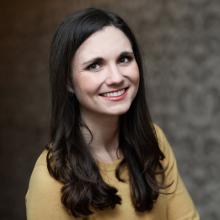By Natalie Sheils
In graduate school, the focus was going deep. I was cultivating myself to become the world authority in one specific area. While I was encouraged to read from various areas and take classes from other departments, I also had to write a thesis which meant learning about (in my case) the Fokas transform method for linear PDEs in incredible depth. What remained unbeknown to me during those times was how this seemingly niche training, and the relationships sprouting from this unique journey, would continue to serve me as my path took me far from UW Applied math.
Spherical Cows and Skateboards
A popular meme which had infiltrated corporate culture when I entered industry in 2019 was the idea of the minimally viable product. In simple terms, the idea is that if your goal is to build a car, instead of starting with composite pieces of the car (wheels, then body, then car) you should build something that does the job but is a smaller simpler way. Start with a skateboard, then a bike, then motorcycle, then car.
While at that time, life outside of academia was foreign to me, this concept rang true. In my mathematical training the need to break a problem down into simpler and simpler pieces until it’s something I could solve and actually use had been drilled into me. It’s this problem-solving ability and creative thinking that, in my mind, makes mathematicians especially well-suited for so many careers. It’s also this ever-present desire to simplify that created the joke in the scientific modeling community to begin by “assuming a spherical cow.”
When I entered graduate school, my advisor suggested a research path for me. He was then “nearly done” (only to be published in 2021, 11 years after we had this conversation) extending a new method for solving PDEs to a specific nonlinear equation. The proposal then, for my thesis, would be to extend the method from there, to a whole class of nonlinear PDEs. The “warm-up” problem to get me a few publications while I got up to speed was to apply this method to a new class of linear PDEs instead. I never made it off the warm-up problem, but that area of research taught me a lot and proved fruitful in its own right. Although it was never discussed in these terms, charting that path was very much choosing to build a skateboard rather than choosing to focus on the best wheel for a car.
Friendships with (unexpected) benefits
I only overlapped in AMATH with Lisa Bishop for one year. And, of course, during that time I was a first year, overwhelmed by the brilliance of my new colleagues, buried in challenging course-work, trying to find an advisor. And Lisa was writing a thesis, giving talks, looking for a job. But the department was small and we knew each other a little bit, at least by name and reputation. Certainly enough so that, in 2015 when some alumni worked together to encourage increased gender diversity in hiring faculty, Lisa was among the first people I emailed. These days Lisa is the director of curriculum at a middle school in California and has invited me to do some of the most rewarding work I’ve ever participated in. As part of school projects with her students, I’ve twice been a pen pal and this year was interviewed for a podcast. Connecting with young, talented, and motivated students reinvigorates my work and reminds me why any of what I’m doing matters. It’s also incredible to get to observe how good Lisa is at her job.
Such unexpected and fortuitous turns of events have continued to be the norm for my relationships formed while in AMATH. Last year I began work at a start-up company in the healthcare space. When we needed to grow our AI team I was able to recruit my first-year cube-mate Ben Lansdell to join. Although the company is fully remote so we cannot share an office space, it’s fun to work together much like we did in those early years studying for qualifying exams and having him coach me through quantum mechanics.
My journey that began at UW AMATH not only shaped my professional outlook but also enriched my personal life. I’ve been reminded, again and again, our paths are not linear; they twist and turn, leading us to unexpected corners. Whether it is about solving problems in complex spaces or friendships leading to unforeseen results, I’ve continued to find delight in the unanticipated.
Added note from the Department: The Department emphasizes that our search process has always been fully in line with Washington State requirements. Specifically, we comply with I-200, which states that ““The state shall not discriminate against, or grant preferential treatment to, any individual or group on the basis of race, sex, color, ethnicity, or national origin in the operation of public employment, public education, or public contracting.”
